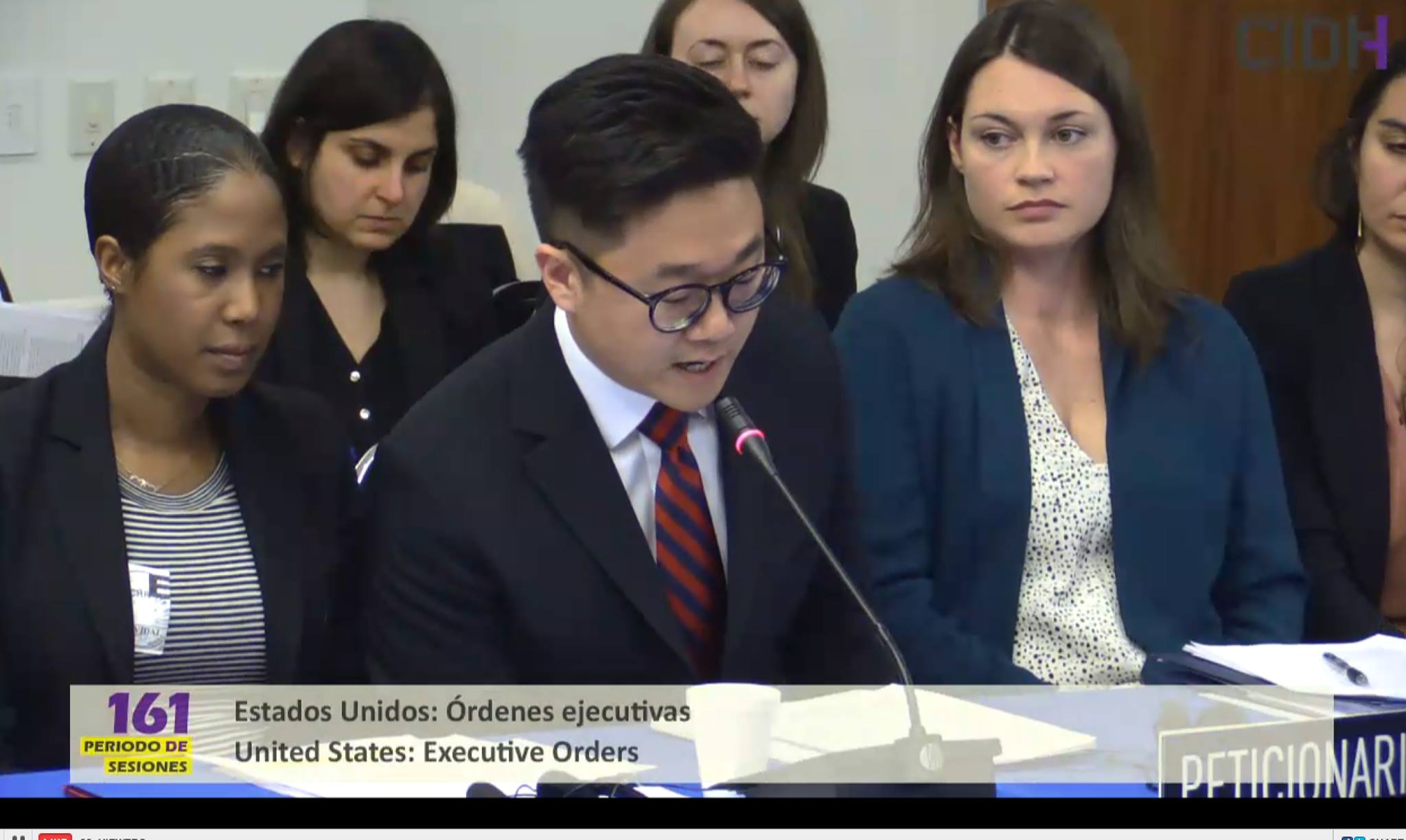
Posted by Jin Kim, JD ’18
When the Inter-American Commission on Human Rights began its emergency hearing yesterday, the room was packed. There were private citizens, state officials, journalists, and representatives from the civil society organizations, all there to discuss the effects of President Trump’s executive orders.
But one party was noticeably absent: the United States.
Although the IACHR invited the United States to participate in the hearing and answer questions on the effects of the executive orders, it declined to send any representative.
As members of the Harvard Immigration and Refugee Clinical Program, Malene Alleyne, LLM ’17, and I were there to testify specifically about the Safe Third Country Agreement (STCA), which allows Canada to turn away asylum seekers entering from the United States on the false premise that the United States is a “safe country of asylum.” We presented our testimony alongside five other civil society organizations, including the American Civil Liberties Union.
Despite the glaring absence of the U.S. government officials, we civil society organizations had productive conversations with the Commission. Malene and I testified that the executive orders greatly curtail asylum seekers’ ability to meaningfully pursue their claims for protection and increase the risk of deportation to countries where they face persecution or torture.
When asked for specific examples, we spoke about the climate of fear pervading the lives of our asylum clients. In some cases, our clients have even been afraid to leave their houses or report crimes to the police for fear that they will be taken into custody and deported.
The Commission was visibly moved by our collective testimony, and asked us to continue to provide information regarding the impact of the executive orders. In the meantime, until our clients feel safe, it’s our responsibility to come together as a community to stand up for those who have been targeted.
Watch a video recording of the Commission’s March 21 hearing.
